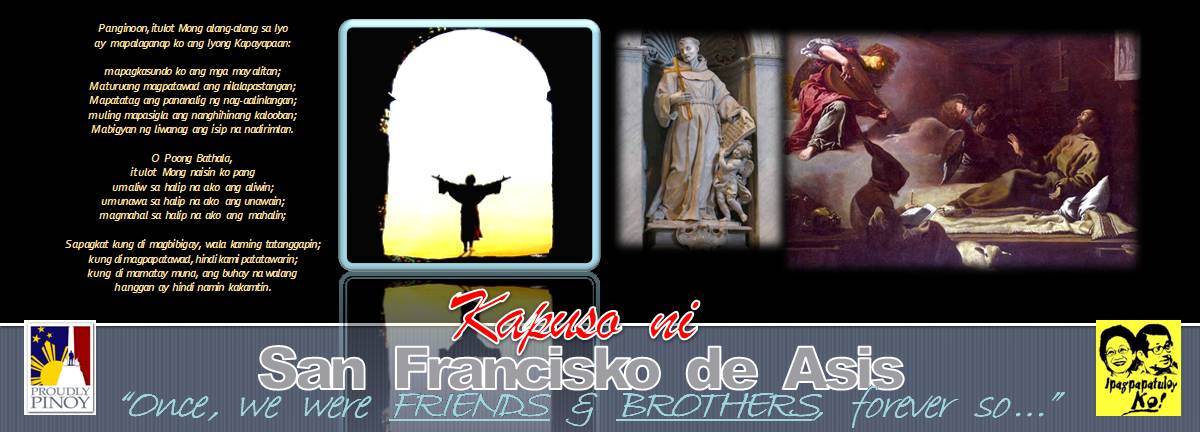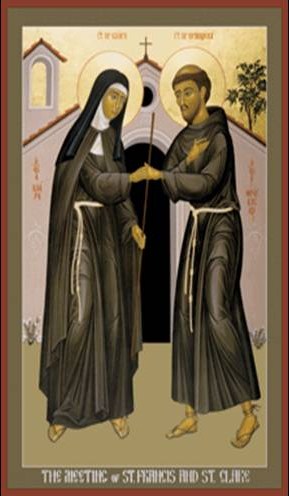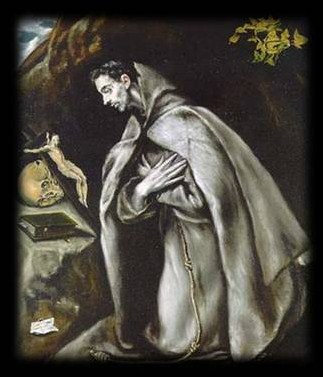
The superior of the brotherhood was, of course, Francis. "His orders were not disputed," wrote Thomas of Celano. "Scarcely had he expressed them, when all rushed to carry them out." But Francis did not spend all his time giving orders. He delegated a part of his authority to a friar who bore the name of "mother," and, like a mother, looked out for the community's needs. The "mother" played the role of Martha and led the active life. Thus the others could, like Mary, give themselves to the contemplative life. From time to time - to reverse the roles and even things up - the "children" became "mothers," and the latter became "children." This arrangement was kept up for a time in the hermitages, where number of religious was limited to three or four. But the "mothers" were soon replaced by the "guardians" or local superiors. Their name perhaps came from the fact that they "guarded" the door andwatched over their brethren. The Fiorette shows us two guradians, Brother Masseo and Brother Angelo exercising their charge. A handsomer man or one with a more pleasing personality could nowhere be found than Brother Masseo da Marignano, who, it seems, always brought back the best morsels from the begging tours. Thus he sometimes needed to be humiliated.
One day Francis made him whirl around with arms flung wide, until he became dizzy and fell full length on the ground. Another time he said to him before the assembled community: "Brother Masseo, if the brothers here possess the grace of prayer, you have received the gift of eloquence and know how to talk to people. So let us practice contemplation, you are to have charge of the door, give out alms and do the cooking. While we eat inside, you will eat outside; and if visitors come, you will be there to say some good words to them without our having to be disturbed." Brother Masseo bowed his head drew back his hood in sign of obedience; and for several days he was cook, porter, and almsgiver. But the others soon began to feel remorse to see all the burden of the work fall on Brother Masseo's shoulders, and they came and begged their Father to release him. "Until you have done so," they said, "we feel that we will be lukewarm and distracted in our prayers." They got their request; for, judging that the trial had lasted long enough, Francis restored things as they were before. But if we are to believe the Fiorette, Brother Masseo was again porter and Brother Elias the superior on the day that a youthful pilgrim of a marvelous beauty came to the door of the hermitage and knocked so loud and so long that all in their huts wandered what was going on.
"Young man," said Brother Masseo, "evidently, this is the first time you have come here or you wouldn't knock that way." "And how should I knock?" inquired the stranger. "Like this! First, you knock calmly three times with a little pause between each rap. Then, after the space of an Our Father, if you see that I am not coming, you can knock again." "But I am in a great hurry," replied the visitor. "Could I speak to Brother Francis?" Masseo explained that Francis was praying in the woods, and that it was not customary to disturb him when he was receiving such great graces from Heaven.

(Ibinahagi mula sa Thailand ni Kapatid Larry de los Santos/Fra Masseo Charbel)













Walang komento:
Mag-post ng isang Komento